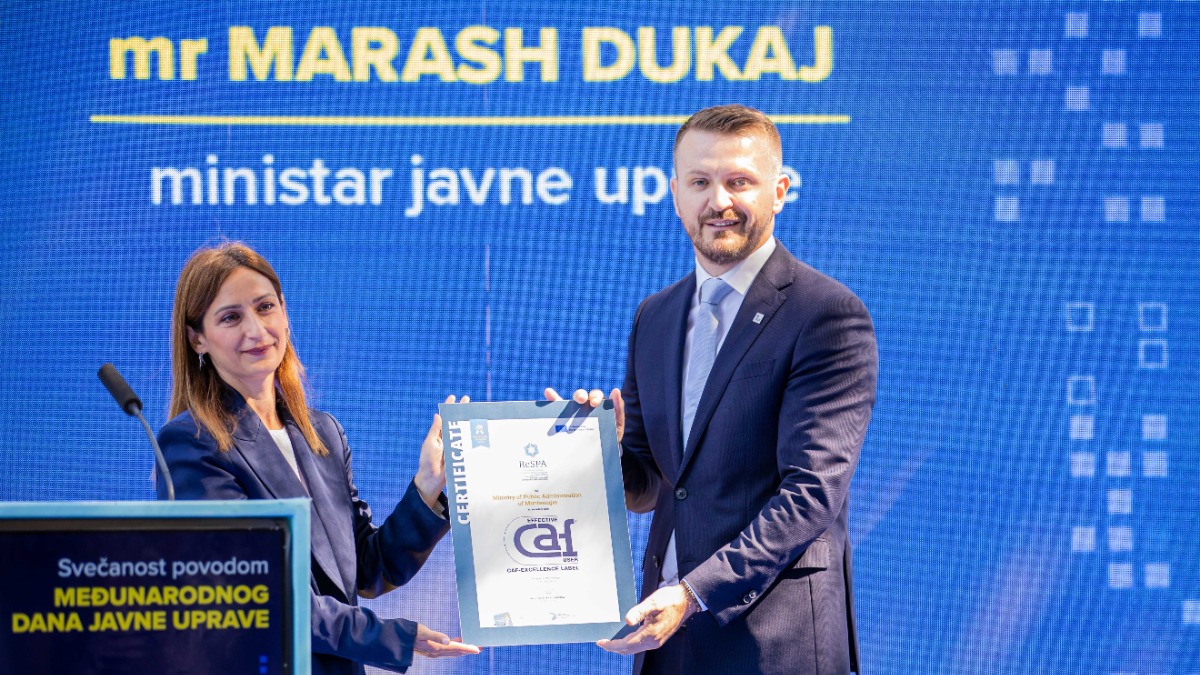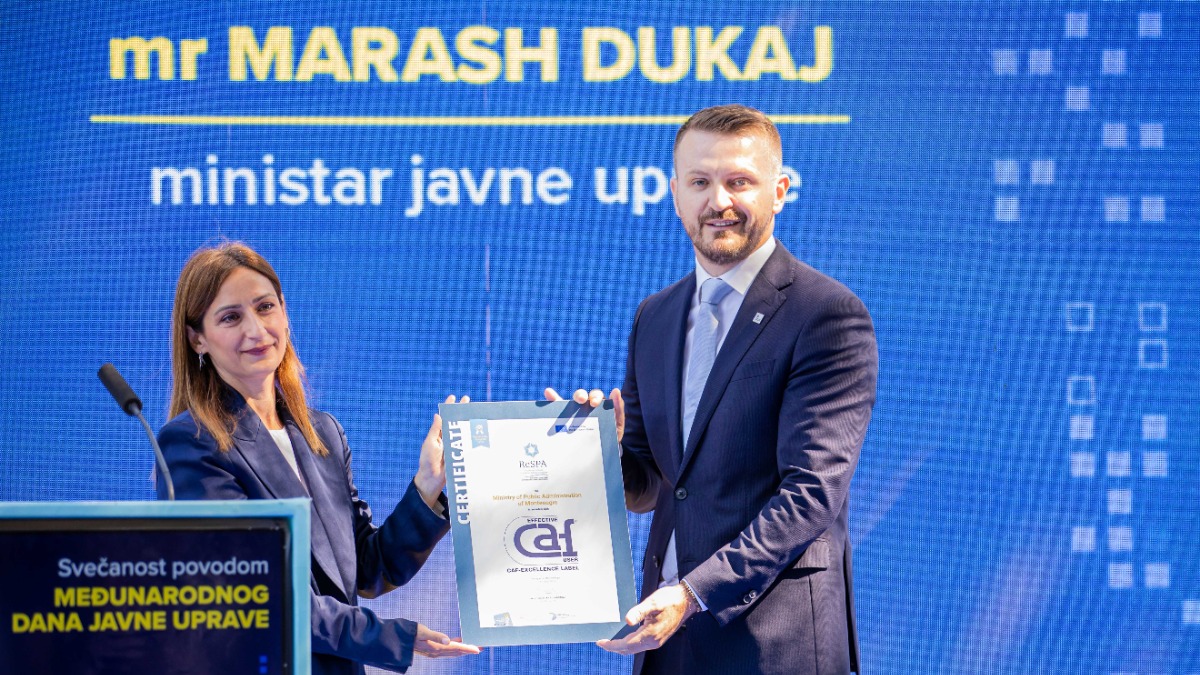Montenegro on the Road to the EU: Public Administration as a Pillar of Democracy or Just Empty Words?
Montenegro proudly claims to be building a public administration that is responsible, open, and efficient — a key pillar of European integration. Minister of Public Administration Marash Dukaj spares no praise for the reforms undertaken — depoliticization, digitalization, new laws, even the CAF certificate confirming commitment to quality. But is it really so, or just another political fairy tale?
Reforms That Sound Like a Dream
Dukaj claims that public administration is now efficient and aligned with modern trends. They have introduced digital services, the eGovernment portal, and even a regional cybersecurity center. The Information Security Law is aligned with European standards, and Montenegro is the only country in the region with such legal solutions. It all sounds like Montenegro is ready to become the digital leader of the Balkans.
But do citizens really feel these changes? Has bureaucracy truly decreased, and are services faster and more accessible? Or is it all just on paper while in practice people still waste time in queues?
Depoliticization or a New Political Game?
The minister emphasizes that depoliticization of public administration is one of the main goals. However, in practice, many claim that political connections are still key to getting a job or service. Is it possible that in a country where politics is deeply rooted in all spheres of society, public administration has truly freed itself from political influence?
Digitalization – Salvation or a New Headache?
Digital services have been introduced, but how functional are they really? Are all citizens, especially those in rural areas, able to use these services? What about older people or those without internet access? Digitalization is great, but only if it is accessible to everyone, not just urban elites.
Awards and Recognitions – Who Really Deserves Them?
At the ceremony on the International Day of Public Administration, awards were given to the best civil servants. Among the recipients are people from various sectors, from real estate administration to customs. But are the awards truly deserved, or are they just another way to show that everything is going according to plan?
Economy and Bureaucracy – Where is the Real Progress?
Deputy Prime Minister Momo Korpivica stresses that reducing bureaucratic barriers and increasing predictability of the investment environment are key reforms. But investors and entrepreneurs often complain about complicated procedures and inefficiency. Has Montenegro really become more attractive for business, or are these just nice words for the EU?
Quality of Services and Human Capital
Director of Human Resources Administration Agron Camaj says the motto “responsible, open, efficient” is not just a slogan but a value that should permeate every segment of work. Investing in people and human capital is a priority. But are public administration employees truly motivated and adequately paid? Or are they still prisoners of a system that does not work?
Conclusion: European Standards or Illusion?
Montenegro has made a huge step on paper towards modernizing public administration. Laws are aligned with the EU, digitalization is underway, and international partners praise the efforts. However, the real test will be in the daily lives of citizens and businesses. Will these reforms truly bring a fairer, more efficient, and transparent system, or will they remain just another story for EU bureaucrats?
If you have already had experience with Montenegrin public administration, whether good or bad, drop a comment. Maybe together we can find out if this reform is really a revolution or just another political trick.












